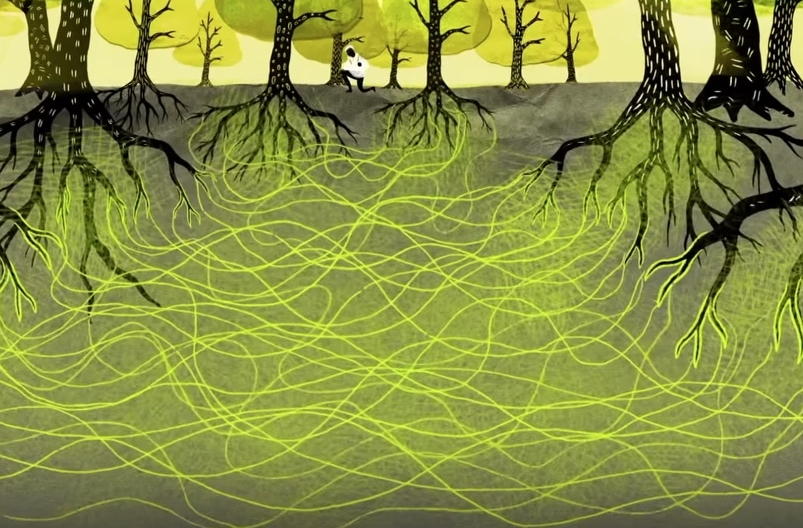What, Perhaps, Joy Is

I was just getting ready to post this lovely little delight from Ross Gay’s Book of Delights (thank you again, Brian) when I got a text (thank you Carrie!) alerting me to the recent On Being podcast, in which this very same Ross Gay responds to the question: “How can we be joyful in a moment like this?” by saying “How can we not be joyful, especially in a moment like this?” and then goes on to say that joy has nothing to do with ease and “everything to do with the fact that we’re all going to die.”
Read the selection I had planned for today (below) and if you want more (which how could you not?!?), listen to the podcast, titled: Tending Joy and Practicing Delight.
“Joy Is Such a Human Madness”: The Duff Between Us
by Ross Gay
“In healthy forests, which we might imagine to exist mostly above ground, and be wrong in our imagining, given as the bulk of the tree, the roots, are reaching through the earth below, there exists a constant communication between those roots and mycelium, where often the ill or weak or stressed are supported by the strong and surplussed.
“By which I mean a tree over there needs nitrogen, and a nearby tree has extra, so the hyphae (so close to hyphen, the handshake of the punctuation world), the fungal ambulances, ferry it over. Constantly. This tree to that. That to this. And that in a tablespoon of rich fungal duff (a delight: the phrase fungal duff, meaning a healthy forest soil, swirling with the living the dead make) are miles and miles of hyphae, handshakes, who get a little sugar for their work. The pronoun who turned the mushrooms into people, yes it did. Evolved the people into mushrooms.
“Because in trying to articulate what, perhaps, joy is, it has occurred to me that among other things — the trees and the mushrooms have shown me this — joy is the mostly invisible, the underground union between us, you and me, which is, among other things, the great fact of our life and the lives of everyone and everything we love going away. If we sink a spoon into that fact, into the duff between us, we will find it teeming. It will look like all the books ever written. It will look like all the nerves in a body. We might call it sorrow, but we might call it a union, one that, once we notice it, once we bring it into the light, might become flower and food. Might be joy.”
